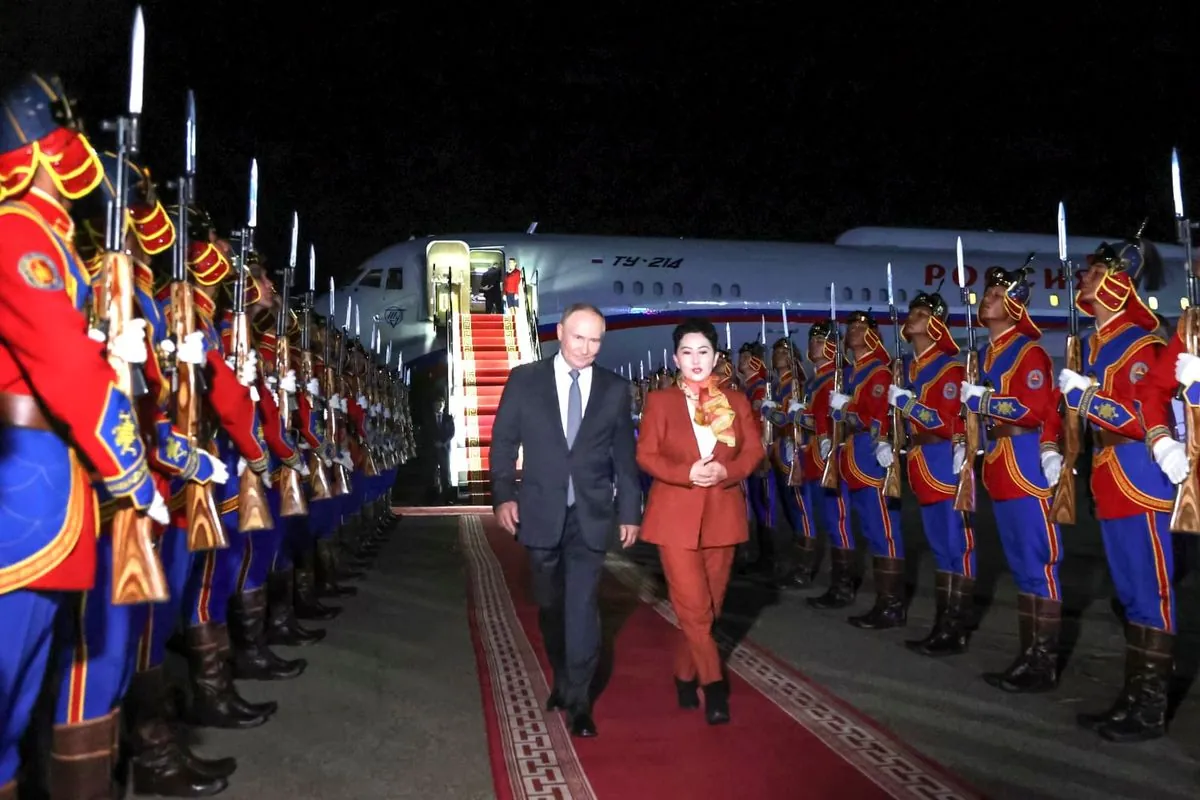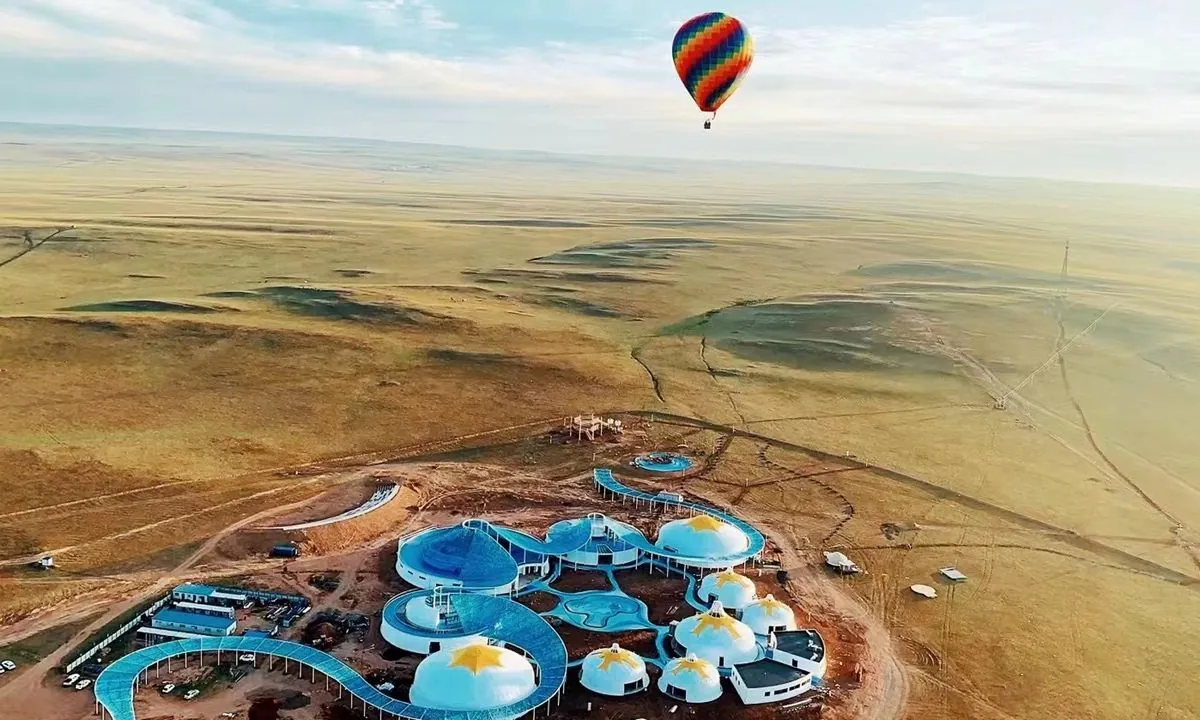Putin's Mongolia Visit Sparks Controversy Amid ICC Warrant Concerns
Russian President Vladimir Putin received a warm welcome in Mongolia, drawing criticism from Ukraine for non-compliance with ICC arrest warrant. The visit focuses on strengthening bilateral ties and discussing energy projects.

Vladimir Putin arrived in Ulaanbaatar, Mongolia's capital, on September 3, 2024, for a state visit that has sparked international controversy. The Russian leader was greeted with a ceremonial welcome, including traditional Mongolian horsemen and a young girl presenting flowers.
Ukraine's foreign ministry spokesperson, Heorhiy Tykhyi, expressed strong disapproval of Mongolia's decision not to act on the International Criminal Court (ICC) arrest warrant issued against Putin in 2023. Tykhyi stated that this inaction undermines the international justice system and implies shared responsibility for alleged war crimes.
The ICC warrant, which obliges its 124 member states to apprehend Putin if he enters their territory, accuses him of illegally deporting Ukrainian children. The Kremlin has consistently rejected these allegations, labeling them as politically motivated.
Despite the controversy, the visit aims to strengthen Russia-Mongolia relations. Putin emphasized the importance of their partnership in Asian foreign policy, while Mongolian President Ukhnaagiin Khurelsukh expressed hope for increased economic cooperation.

A key topic of discussion during the visit is the Power of Siberia 2 pipeline project. This ambitious venture aims to transport 50 billion cubic meters of natural gas annually from Russia's Yamal region to China, passing through Mongolia. It's part of Russia's strategy to compensate for reduced gas sales to Europe following the Ukraine conflict.
Mongolia, known as the "Land of the Eternal Blue Sky," has a unique position in this geopolitical landscape. As the world's most sparsely populated country, it balances relations between its powerful neighbors. The country's rich history, including its connection to Genghis Khan and the largest contiguous land empire in history, contrasts with its current economic reliance on mining and potential role in energy transit.
The visit highlights Mongolia's complex international position. While maintaining ties with Russia, the country also engages with other global powers. The Trans-Mongolian Railway, connecting Ulaanbaatar with Moscow and Beijing, symbolizes these interconnections.
As discussions continue, the world watches how Mongolia navigates its relationships with Russia, China, and the international community, all while preserving its unique cultural heritage, from its traditional wrestling sport "Bökh" to its endangered Przewalski's horses.
"Mongolia has allowed an accused criminal to evade justice, thereby sharing responsibility for the war crimes."
This visit, occurring amidst global tensions and energy politics, underscores the intricate balance smaller nations must maintain in an increasingly complex geopolitical landscape.


































